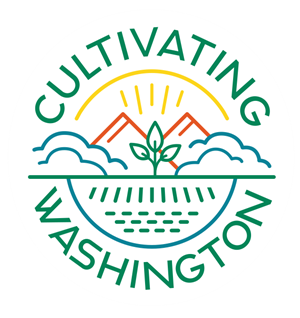On June 21, 2001, the Washington State House of Representatives adopts a resolution declaring Walter Clore (1911-2003) to be the "Father of the Washington Wine Industry." The resolution is sponsored by state representatives Shirley Hankins, Jerome Delvin, Joyce Mulliken, and Mike Armstrong. Clore is 89 years old at the time of the resolution, and has been a renowned figure in Washington winemaking for decades. The text of the resolution briefly outlines his accomplishments: Clore was a groundbreaking horticulturist at the Irrigated Agricultural Research and Extension Center in Prosser, where he began his work in 1937 to develop the wine industry in Washington. He worked there until 1976, showing farmers how to grow the most suitable wine grapes for the region. The resolution concludes: "Now, therefore, be it resolved that the House of Representatives recognize and honor Walter Clore" as the founding father of an entire – and now famous – state agricultural industry (Resolution No. 2001-4667).
The core of the 2001 House resolution reads as follows:
WHEREAS, It is the intent of the members of the fifty-seventh House of Representatives to recognize and honor the life and accomplishments of Walter Clore; and
WHEREAS, Walter Clore is a resident of Benton County and worked to improve and enhance the wine industry of Washington State; and
WHEREAS, Walter Clore was the first horticulturist at the Irrigated Agricultural Research and Extension Center; and
WHEREAS, Walter Clore worked at the Center from 1937 to 1976; and
WHEREAS, Walter Clore worked as a consultant to wineries and grape growers in Eastern Washington; and
WHEREAS, Walter Clore will be 90 years of age on July 1;
NOW, THEREFORE, BE IT RESOLVED, That the House of Representatives recognize and honor Walter Clore as the Father of the Washington Wine Industry (Resolution No. 2001-4667)
However, this was not the only resolution passed by the Washington State Legislature honoring Walter Clore. Two years later – soon after his death on February 3, 2003 -- the Washington State Senate and the Washington State House of Representatives both adopted identical resolutions declaring him once again to be the "Father of Washington Wine" – this time leaving out the word "industry."
These resolutions were passed on February 12, 2003 in the senate and February 13, 2003 in the house. These resolutions went into far more detail about Clore's background and accomplishments. Here is the text of the State Senate's version of the 2003 resolution:
WHEREAS, Dr. Walter Clore was born on July 1, 1911, and grew up in Oklahoma during Prohibition; and
WHEREAS, Dr. Clore was raised to be a teetotaler yet wound up being known as the "Father of Washington Wine"; and
WHEREAS, Dr. Clore arrived at then-Washington State College in 1934 on a $500 fellowship, one of the best educational investments ever made in Washington history; and
WHEREAS, In 1937, Dr. Clore was appointed as assistant horticulturist at the college, thus beginning a very long and productive career in which he worked with tree fruits and small fruits, including grapes; and
WHEREAS, Dr. Clore did extensive research on what kinds of premium wine grapes would grow well in certain areas of Washington, irrigation techniques, and how to help grape vines survive bitter freezes that hit Washington periodically; and
WHEREAS, Dr. Clore had the wisdom and foresight to envision Washington, particularly the Columbia Valley, as one of the best wine-making regions in the world when others said it was not possible; and
WHEREAS, In the early 1970s, Dr. Clore helped Washington wine grape growers survive and thrive after the state allowed the sale of fine California wines; and
WHEREAS, Dr. Clore retired in 1976, but continued to consult wine grape growers for years afterward, helping set Washington's wine industry on a course that would allow it to become a world-renowned wine-producing region, a key economic force with a $2.4 billion impact on the state, and the second largest in the nation behind California; and
WHEREAS, The WSU Foundation in 1993 established the Walter J. Clore Scholarship Endowment to provide scholarships to full-time undergraduate students at WSU who are interested in studying grape production, processing, or marketing; and
WHEREAS, Plans are now being made to build a $6 million Walter Clore Wine and Culinary Center in Prosser; and
WHEREAS, Dr. Clore died on February 3, 2003, in Yakima;
NOW, THEREFORE, BE IT RESOLVED, That the Washington State Senate hereby honor the life and accomplishments of Dr. Walter Clore, the "Father of Washington Wine"; and
BE IT FURTHER RESOLVED, That copies of this resolution be immediately transmitted by the Secretary of the Senate to the family of Dr. Walter Clore (Resolution No. 2003-8618).
Even this relatively lengthy account of Clore's accomplishments could not cover all of his contributions. He took it upon himself in those early years to evaluate which wine grapes would be most suitable for Washington vineyards. He "encouraged new growers to start with Riesling," a white wine grape which proved to be ideal for Columbia Valley and Yakima Valley climates, and which also proved to be a commercial hit (Sudermann). In the 1970s, "Riesling took off and paved the way for chardonnay, cabernet sauvignon, merlot and Semillon" (Sudermann).
Soon after, the Washington wine industry became an economic juggernaut. Upon Clore's death in 2003, Keith Love of Stimson Lane Vineyards and Estates (soon to renamed Ste. Michelle Wine Estates), said, "We are here today because of him" (Skeen).
As the resolution indicated, plans were already underway to build the Walter Clore Wine and Culinary Center in Prosser, to showcase Washington wines. The 15,000-foot center opened in 2014 and offers a tasting room, educational facilities, and exhibits that tell the story of Washington wines -- and the story of the man considered to be their "father."

